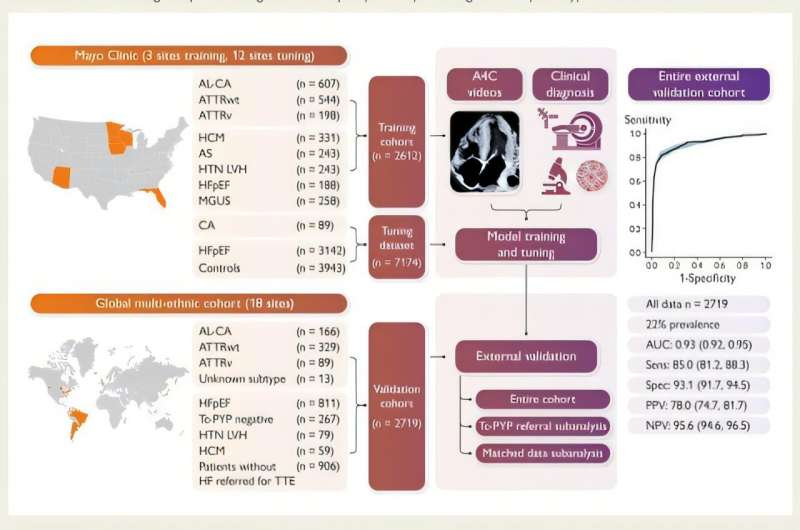Researchers from Mayo Clinic and Ultromics, with investigators at the University of Chicago Medicine and collaborators around the world, validated and tested the model on a large and multiethnic patient population and compared its abilities to other diagnostic methods for cardiac amyloidosis.
Their findings, published in the European Heart Journal, show that the AI model was highly accurate, with 85% sensitivity (correctly identifying those with the disease) and 93% specificity (correctly identifying those without the disease). Using a single echocardiography videoclip, the model was effective across all major types of cardiac amyloidosis and distinguished it from other conditions with similar characteristics.
Cardiac amyloidosis is a life-threatening condition where an abnormal protein, called amyloid, builds up in the heart, causing it to stiffen and not work properly. It is often missed because the symptoms and imaging features can be similar to other heart conditions. However, early diagnosis is crucial because new drug therapies are now available that can slow or stop the disease’s progression.

